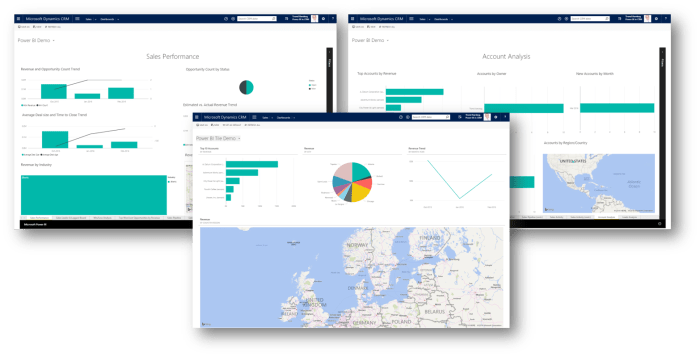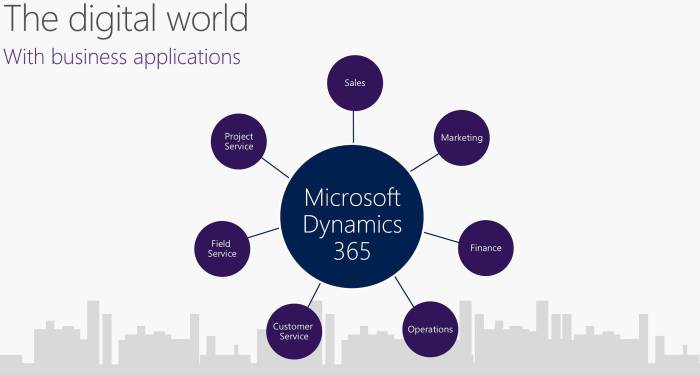CRM software comparison is essential for businesses seeking to enhance their customer relationships and streamline operations. With numerous options available in the market, understanding the unique features and benefits of each CRM solution can significantly impact a company’s success. This exploration not only highlights the vital aspects of CRM systems but also guides you through key players and their offerings.
In this analysis, we will delve into the critical criteria for comparing various CRM software solutions, including pricing structures and user experiences. By examining these elements, businesses can make informed decisions that align with their specific needs and goals.
CRM Software Overview
CRM (Customer Relationship Management) software is an essential tool for businesses looking to enhance their interactions with customers, streamline processes, and increase profitability. By centralizing customer information and automating various tasks, CRM systems empower organizations to maintain and nurture client relationships effectively.The main features of CRM software typically include contact management, sales management, productivity tools, and reporting and analytics. These features work together to provide businesses with a comprehensive view of customer interactions, sales pipelines, and performance metrics.
The automation of routine tasks also allows teams to focus on building relationships and closing deals rather than getting bogged down in administrative work.
Main Features of CRM Software
The features of CRM software serve a critical role in enhancing customer interactions and overall business efficiency. Key functionalities include:
- Contact Management: This feature allows businesses to store and manage customer information, including contact details, communication history, and preferences, all in one place.
- Sales Management: CRM systems help track sales pipelines, manage leads, and forecast sales, ultimately aiding in closing deals faster.
- Task Automation: Automation tools streamline repetitive tasks, such as follow-up emails and appointment scheduling, freeing up valuable time for sales teams.
- Reporting and Analytics: Enhanced reporting tools provide insights into sales performance, customer behavior, and market trends, allowing for informed decision-making.
- Integration Capabilities: Many CRM solutions can integrate seamlessly with other business applications, such as email, marketing platforms, and accounting software, to create a unified ecosystem.
Benefits of Using CRM Systems for Businesses
Implementing a CRM system presents numerous advantages that can significantly impact business performance. Notable benefits include:
- Improved Customer Relationships: With access to comprehensive customer data, businesses can tailor their interactions, leading to increased customer satisfaction and loyalty.
- Enhanced Collaboration: CRM platforms facilitate better collaboration among teams by providing shared access to customer information and communication logs.
- Data-Driven Decisions: Advanced analytics help businesses identify trends and make informed strategic choices based on real-time data.
- Increased Efficiency: By automating routine tasks, teams can focus on high-impact activities, leading to improved productivity and sales outcomes.
- Scalability: CRM systems can grow with the business, allowing organizations to adapt to changing needs without sacrificing functionality.
Key Players in the CRM Market and Their Offerings
The CRM market is populated by several prominent players, each offering unique features and capabilities tailored to different business needs. Some key players and their notable offerings include:
- Salesforce: Known for its extensive customization options and robust ecosystem, Salesforce provides a cloud-based CRM platform suitable for businesses of all sizes.
- HubSpot: HubSpot offers a free CRM tool that is particularly popular among small to medium-sized businesses, featuring user-friendly interfaces and marketing automation tools.
- Microsoft Dynamics 365: This CRM solution integrates seamlessly with other Microsoft products, making it ideal for organizations already using Microsoft services.
- Zoho CRM: With affordable pricing and a suite of integrated applications, Zoho CRM caters to startups and small businesses seeking comprehensive functionalities.
- Oracle NetSuite: This enterprise-level CRM solution is designed for large organizations, providing advanced analytics and real-time visibility into customer interactions.
“A good CRM system is like a compass, guiding businesses through the complexities of customer relationships and helping them navigate toward success.”
CRM Software Comparison Criteria

When selecting a CRM software, it’s crucial to evaluate various aspects to ensure it meets the specific needs of your business. A well-informed comparison can help identify the best solution that not only enhances productivity but also aligns with your budget and growth objectives. To make an effective comparison, consider factors such as pricing, features, scalability, user interface, integration capabilities, customer support, and user feedback.
Each of these components plays a significant role in determining the overall effectiveness and suitability of a CRM tool for your organization.
Key Aspects for CRM Comparison
Understanding the key aspects of CRM solutions is essential for making a sound decision. Here are the primary criteria to consider when comparing different CRM software:
- Pricing: Evaluate the pricing models, including subscription costs, one-time fees, and any additional charges for features or support.
- Features: Analyze the core functionalities, such as lead management, sales forecasting, reporting, and automation capabilities.
- Scalability: Consider how well the CRM can grow with your business. Look for options that can accommodate increased users or data without losing performance.
- User Interface: Assess the ease of use and intuitiveness of the software. A user-friendly interface can reduce the learning curve for your team.
- Integration: Check the compatibility with other software solutions your business uses, such as email marketing tools, accounting software, and e-commerce platforms.
- Customer Support: Investigate the availability and quality of customer support, including options for live chat, phone support, and documentation.
- User Feedback: Review user ratings and testimonials to gain insights into real-world experiences with the software.
CRM Comparison Table
Below is a comparison table of some of the top CRM tools, outlining their pricing, features, and customer support options:
| CRM Tool | Pricing | Key Features | Support |
|---|---|---|---|
| Salesforce | Starting at $25/user/month | Lead management, Marketing automation, Reporting | 24/7 Support, Community Forum |
| HubSpot CRM | Free basic features, Paid plans start at $50/month | Contact management, Email tracking, Sales pipeline | Email support, Knowledge Base |
| Zoho CRM | Starting at $12/user/month | Customizable dashboards, Workflow automation, Analytics | Email support, Chat support |
| Pipedrive | Starting at $15/user/month | Pipeline management, Activity reminders, Reporting | Email support, Live chat |
User Reviews and Ratings
User reviews provide valuable insights into customer satisfaction and software performance. Here are some ratings and highlights from users of popular CRM solutions:
- Salesforce: Rated 4.2/5 on Capterra. Users appreciate its customization options but note the steep learning curve.
- HubSpot CRM: Rated 4.5/5 on G2. Users love its free features and ease of use, making it ideal for small businesses.
- Zoho CRM: Rated 4.4/5 on Trustpilot. Users enjoy its affordability and comprehensive features, but some mention occasional bugs.
- Pipedrive: Rated 4.5/5 on Software Advice. Users highlight its intuitive interface and effective sales tracking, with minor complaints about the mobile app.
Related Business Technologies

Establishing a robust online presence is crucial for CRM providers to reach their target audience effectively. This involves not just having a functional CRM software, but also leveraging complementary technologies that enhance visibility, usability, and training capabilities.
Role of Web Hosting and Domain Names
Web hosting and domain names serve as the foundation for CRM providers’ online presence, enabling potential customers to find and access their services easily. A reliable web hosting service ensures that the CRM provider’s website is consistently available, fast, and secure, which is essential for maintaining a professional image. A memorable domain name helps in brand recognition and contributes to search engine optimization (), making it easier for users to discover the software online.
Importance of Effective Web Design and Development
Effective web design and development play a significant role in the usability of CRM software. A well-designed interface ensures that users can navigate the software intuitively, facilitating a smoother experience that can lead to increased adoption rates. Features such as responsive design allow the CRM to function seamlessly across different devices, while user-centric design principles enhance usability by focusing on the needs and behaviors of the end-users.
This ultimately leads to higher satisfaction and productivity among users.
Integration of CRM Software with E-books and Multimedia
Integrating CRM software with e-books and multimedia resources can significantly enhance training and onboarding processes. Multimedia elements such as videos, infographics, and interactive e-books provide varied learning formats that cater to different learning styles, making training more engaging. For instance, tutorials that include video demonstrations of the software can help new users grasp functionalities quickly and effectively, leading to a more efficient onboarding experience.
This integration not only improves user competence but also fosters a deeper understanding of the CRM’s capabilities, ultimately benefiting the organization as a whole.
Outcome Summary
In conclusion, navigating the landscape of CRM software comparison reveals a wealth of opportunities for improving business performance and customer satisfaction. By understanding the key features, benefits, and criteria for selecting the right CRM, companies can position themselves for growth and success in an increasingly competitive market.
FAQ Section
What is CRM software?
CRM software is a tool designed to manage a company’s interactions with current and potential customers, helping to streamline processes and improve profitability.
How do I choose the right CRM software for my business?
Consider your business size, budget, specific needs, and the features offered by different CRM solutions before making a decision.
Can CRM software be customized?
Yes, many CRM systems offer customization options to tailor the software to meet your business’s unique requirements.
Is CRM software suitable for small businesses?
Absolutely! CRM software can benefit businesses of all sizes by improving customer relationships and operational efficiency.
How does CRM software integrate with other tools?
Most CRM solutions can integrate with various business tools such as email marketing platforms, accounting software, and e-commerce systems to enhance functionality.